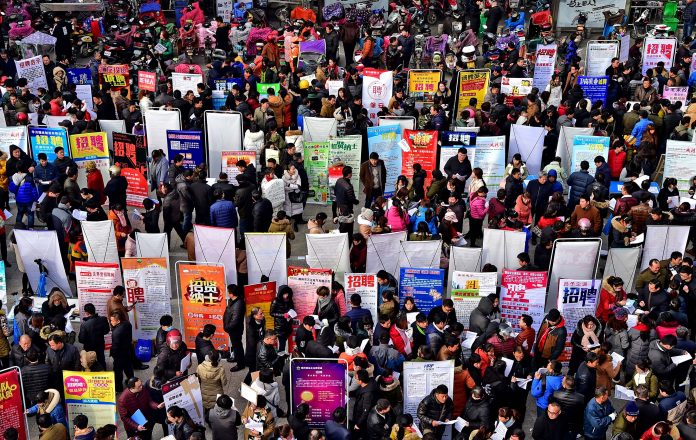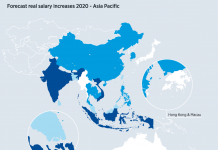Chinese Premier Li Keqiang linked the concept of first-half economic growth in China staying within a reasonable range to relatively full employment. The comments came in a keynote speech at the Annual Meeting of the New Champions 2019, also known as Summer Davos, in Dalian, Northeast China’s Liaoning Province. Executives and experts in attendance also corroborated Li’s claims.
According to Li, surveys show that urban unemployment rate remains stable at a relative low point of around 5 per cent. Ning Gaoning, who has been at the helm of four large centrally administered state-owned enterprises, said that employment data is sound and the closely watched GDP figure is not as important as employment statistics. Ning believes there is no need to obsess over GDP growth as maintaining a low and stable unemployment rate will natural contribute to a growing economy.
Han Jian, an associate professor with the China Europe International Business School, said that the projected impact of the trade war varies, with estimated job losses ranging from 500,000 in the best-case scenario to 27 million in the worst-case scenario, depending on which research institute calculated the figure.
“The actual negative impact arises from a lack of enthusiasm to invest, the hit on export-oriented manufacturing and supply-chain disruptions on technology companies,” Han told the Global Times.
One of the reasons Han cited for the robustness of the Chinese job market is that new business generated by the internet and mobile internet has created at least 30 million jobs. He claims this as proof that the capacity of the Chinese economy to create jobs outstrips the maximum damage the trade war can bring.
As of May 2019, China’s surveyed unemployment rate remains at 5 per cent, below the nations stated target of 5.5 per cent. The country created 5.97 million jobs from January to May, more than half of the stated annual target, according to an official with the Ministry of Human Resources and Social Security.
Li Chang’an, a professor at the Department of Public Economics at the University of International Business and Economics, told the Global Times that the better-than-expected performance can be credited to pre-emptive policy making by the country’s government. Before the trade-war with the US began, China’s domestic economy was already facing downward pressure as operation costs within the country rose. As such, the impact of the trade-war was lessened somewhat.
China for the first time in 2019 elevated its employment policy to the same level of importance as its monetary and fiscal policies.
However, one of the key talking points that came up at Davos was the need to change the way businesses in China managed staff. Chinese companies have prioritise the pursuit of innovation and efficiency, often at the expense of employees. Han argues that this must give way to focus on effectiveness and diversification.
“Staff need a more diversified environment and need more patience and trust from their employers to create innovative products and services,” Han said.
Many companies in China still utilise long work hours and offer few benefits to employees. While the government has made moves to counteract this, the process has been slow and repercussions are not regularly enforced.






















